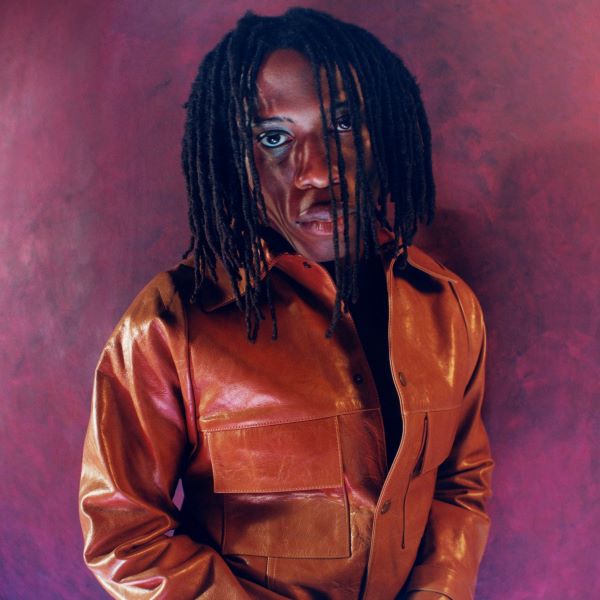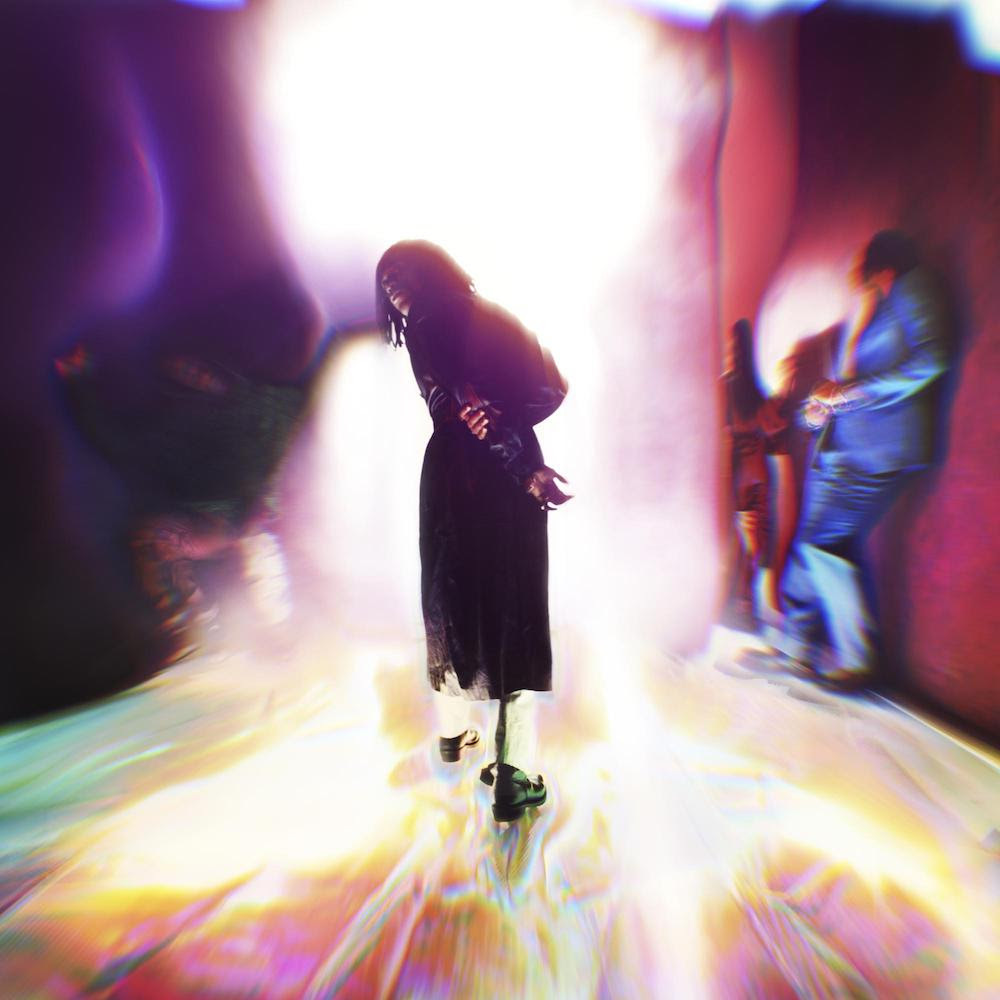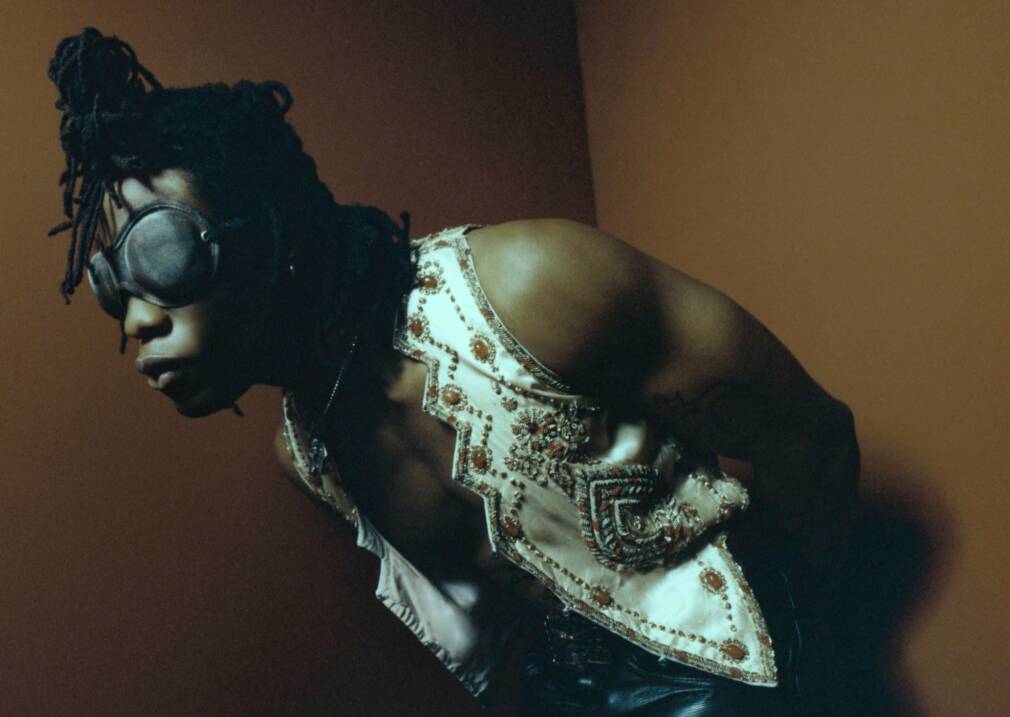A hot tear rolled down her cheek as his voice pierced through the room that sunny afternoon. His eyes were closed for the most part, as if he was trapped in a daydream. However, this was no dream; this time it was real.
Steven Umoh sat on the bare floor with the microphone clutched between his fingers. His smooth lithe vocals serenaded his siblings and mother, over the gentle piano chords. The atmosphere in their South London living room was diffused with strong emotion as he performed his sombre bop, I Wish It Was Me, off his recently-released debut album, Some Nights I Dream Of Doors.
This was just a few days to the release, which he would follow up with a visit to Lagos, Nigeria, for a special album listening session. With the arrival of the album, Umoh, professionally known as Obongjayar, struck discographic gold. The young maverick, who is currently among the most respected hitmakers within the alternative music scene in Nigeria, a confraternity of younger artists with stylised deviations from traditional art forms, weaves storylines and sonics to create a message of hope for humanity.
A Pursuit of Passion, Progressiveness
Since Obongjayar’s teenage years, he always had his heart compassed towards progressive radicalism. Since he started his first boy-band dubbed, Kensten3, during a positive ego contest with his younger brother, he revelled in the idea of being different. During his undergraduate studies at the Norwich University of the Arts, where he studied graphic design, Obongjayar explored the work of Fela Kuti, the Nigerian musical icon and progenitor of Afrobeat. He also admired Fela Kuti’s semi-nude, adrenaline-charged stagecraft and daredevil lyricism, and it mirrored an identity that had long been cocooned within him – a bohemian musical genius.
Within Some Nights I Dream Of Doors, Obongjayar reflects the same type of genius that he once admired in Fela. The album, with soothing funk-laden groove like “Sugar”, also unleashes his raspy alto over some thumpy percussions in “Message In A Hammer”. His throaty voice and aggressive alto in “Message In A Hammer”, resembles the energy on Fela Kuti’s records. Sonically, the latter also comes closer to the work of another Nigerian legend, Lagbaja, who glimmered for that same gritty baritone. Obongjayar makes Afro-fusion that is heavily coloured in jazz, funk, soul, and electronic synths. Nonetheless, he often seems to have multiple vocal personalities within his records, just like in “Some Nights I Dream of Doors.” For Obongjayar, this diversity is hardwired from the messages that inspire him while he writes his music.
“It is just how it happens. There are nuances between vocals. It is like when you are angry and you are shouting, do you sound the way you sound when you speak? If you are angry and you are trying to get your emotion out for instance, your voice changes from your regular speaking voice to the voice that you use when you are pissed off. When you are talking to a girl or whatever your orientation is, maybe a boy or whatever, and you are trying to talk to them, your voice changes. That is how I see music. If I am making a song where I am trying to communicate a certain idea, my voice becomes morphed into that feeling. It is just the way it is. Luckily, for me, I have found a way how I can render those feelings through songs, with the voice that I have.” Obongjayar on a song like “Sweetness”, and Obongjayar on a song like “Message In A Hammer” are two different things.
The passion that Obongjayar radiates within his discography is the fruit of his deliberate vulnerability, perfectionism, as well as grit. Cohesively, Obongjayar’s musical identity might come off as alternative. However, his versatility still brings him closer to mainstream audiences within Africa and Europe. His 2021 collaborative EP with Grammy-nominated Nigerian producer, Sarz, titled Sweetness is the closest he ever came to using Nigerian lingo, such as Pidgin, to connect with his audience back home. Unlike Some Nights I Dream of Doors, the 4-tracker EP expunges the less serious, more romantic side of Obongjayar, without any of the pensiveness that colours his records. Yet, his disco-feting flows confluence confidently with Sarz’ groovy percussion over the records.
Rhythm and Reason
From his earlier records, Bassey and Which Way Is Forward? Obongjayar had coloured his lyricism with the same positivity and vulnerability that glows in Some Nights I Dream Of Doors. For him, writing music has always prefixed his creative process, from as early as his secondary school days. Now, he continues to put these thoughts together, before he turns towards the sound of the music.
“Of course,” his voice bellows with a booming enthusiasm, “the message is usually the first point of action. Like any of my projects, or anything that I’ve done so far, the titles always come first. The subject of what I’m trying to talk about always comes first. It is never just a random thing. I guess I can go into the studio and just make vibes, but that is not really what I do with myself as an artist. It is not necessarily a waste of time, because it has its purpose, but for me, it’s not where my head is at right now.” He ends most of his sentences throughout our conversation with the rhetorical ‘Do you know what I mean?’ as if he requires some sort of assurance. Perhaps because shared meaning is the bedrock of his musical apostolate. Unlike some ‘alternative’ artists, he does not have the neo-selfish drive to solely satisfy his artistic curiosity; he is primarily here to pass a message, with the hopes that his audience understands what he is saying.

Obongjayar also keeps a strict ritual of waking up every morning at 5 am to write songs. One core mantra motivates his lifestyle, especially in his work: showing up, even when you do not feel like it. “It is just routine. It is not necessarily a ritual. I wake up at 5 in the morning and the first thing that I do is write. That is standard. That is just me forcing myself to show up. I am just showing up to do the thing that I love to do.” However, he remains attentive to the winds of inspiration, allowing it to sway him whenever and wherever it chooses. “When inspiration strikes, there’s no telling. There is no magic. You know what I mean? Like you can’t pick up a particular thing and the flood gate is open. You just have to let it happen when it happens.”
Unlocking Door
The message behind Some Nights I Dream of Doors is as simple as it is complex. He breaks it down in his own words. “Basically, this project is about the idea of an opportunity, what that means. It’s like ‘when does the dream begin and when does a dream end?’ What does that stuff mean? The dreaming process?”
“For me, it was basically talking to myself through my whole career -the ups and downs- where I am at and where I am trying to go to. I think a lot of us go through situations where we are not comfortable with where we are and so we seek something else like success or ‘better life.’ It’s the seeking. The project is focused on that search and the characteristics of that search; how you explore the search and why we are searching for order, and what it means when we get to that place that we think we are looking for.”
Obongjayar also believes that while his lyricism is intimate to his own stories and perspectives, people can see them as an “open ended conversation and apply it to whatever they want to.” It is not that Obongjayar makes didactic or witty music which speaks to his socio-political realities, because he has a gun shoved up his throat. For him, it is an intentional effort to find his voice, and constantly use it for good. All because he is one that “cares.”
“I feel, so I am going to talk about it. I am allowed to. Of course, I care,” his voice switches to an instant mellow. He remembers the October 2020 protests in Nigeria, and the violence that swept across the country when it was quelled. “Some people went to protest and they lost their lives. Not everyone is privileged to be vocal and have a voice to speak. I had to be vocal about it. Even if you say my music is political, of course it is political because these things affect me. I am Nigerian and I have lived through a whole bunch of bullshit. I might not currently be there or be experiencing those things, but it is something that matters dearly to me. Hopefully, in the future I can then do something about it rather than just necessarily sing about it.”
Obongjayar’s Picasso-type perfectionism is also another reflection of his creative preferences. For instance, a record like Try took almost two years to finish. “There’s a lot happening within instrumentation. If you really listened, you could hear that the tempo in the verse and the tempo in the hook are two completely different tempos. I don’t even know how. Try was very difficult to figure out.” Perhaps, Obongjayar’s ascetic-type artistry is a reason behind his streak of solo projects. While he has a long line up of duets with other black musicians, including Boj, Little Simz, Jeshi, Everything Is Recorded, among others, Obongjayar hardly ever features anyone directly. For him, everything has to be organic, “If it happens, then great. I am not chasing a thing. It has to all come organically for me because music isn’t business. I don’t care about all that rubbish.”
‘Beyond The Doors’
For Obongjayar, life had never been a bed of roses. While his mother was in London, trying to midwife his migration, he and his brother lived with their grandmother, in Cross River State, a riverine clime in Southern Nigeria. He also spent some time within the megacity of Lagos, all of which shaped his socio-political perspectives before he migrated. By the time Obongjayar was in London, his horizon widened. He began to experience a different way of life and empathise deeper with the tortuous socio-political realities he experienced back in Nigeria.
For Obongjayar, his vision continues to be crystal clear: it is to constantly use his music to amplify a sense of hope for people, to show them possibilities they once thought impossible. For him, it is all about unlocking doors and setting people free. “Growing up was not easy but I am just grateful to be in the position that I am in now and I just hope that I can help someone and expose them to something else other than where they are. My mission is to open up the box and tell people that it could be better than what it is. You don’t have to settle because that is all you know how to do.”
As Obongjayar opens the doors to another realm of his discography, no one, not even himself can predict what lies ahead. For him, his art is intertwined with his lifestyle, and the next phase is also something he is eager to experience. “I am not an entertainer. We are just still working. It’s not even working; I am still just like the next and onto searching for new ideas, just living man, just living and creating basically, that is it. I am not trying to achieve anything with this record. I am making the music how I want to make it and I am creating a part for myself. Wherever that path leads, who knows? As long as I am into it and as long as it is something that I love to do, that’s all I am looking forward to doing.”
You know what I mean?
Listen to Obongjayar’s Some Nights I Dream Of Doors now.




